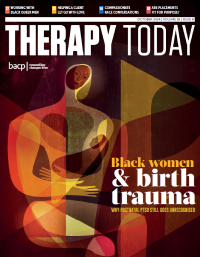My Research
Elizabeth has received multiple awards and grants for her research, including a new researcher award and a secondary data analysis grant from BACP. She currently teaches at University College London, Anna Freud Centre and Birkbeck, University of London.
My journey into this field of research began during my undergraduate studies in social work, where I specialised in counselling and psychotherapy and became aware of a common pattern – people with mental disturbances often had troubled childhoods and adolescences marked by mistreatment. I saw how early negative experiences could manifest in different ways later in life. Many of these individuals felt pain, sadness, self-hatred, helplessness and confusion, living in a social world but not knowing where to turn. Some sought help from others, sometimes showing an overly dependent tendency, some distanced themselves, and others would swing between these two extremes.
My research generally looks at individuals who grow up in abusive or deprived environments and how they cope. For my PhD at UCL, I focused on epistemic mistrust, which leads people to perceive social communication as unreliable, preventing them from fully benefitting from relationships and communities.
After my PhD I began working with the San Francisco Psychotherapy Research Group to understand how psychotherapy can be better tailored to meet individual patients’ needs and goals. Overall I want to understand what makes some people vulnerable while others are resilient, and I want to help to empower people who have been mistreated in the past to foster their ability to become full members of the community and regain control over their lives and mental health. My ultimate goal is to contribute to a mental health field where patients are active participants in their recovery and life.
Race and diversity in therapy
1 Cultural topics in therapy
The study: The researchers examined three types of ‘broaching’ in therapy – direct, indirect and avoidant – and the impact on client perceptions of microaggressions and therapist multicultural orientation. Direct broaching involves explicitly raising cultural topics, while indirect broaching explores issues without explicitly referencing cultural backgrounds, such as asking about similar experiences in other situations. Avoidant broaching involves ignoring or sidestepping cultural conversations, even if initiated by the client.
The findings: An indirect broaching approach to addressing clients’ cultural issues, particularly related to ethnicity, gender identity or sexual orientation, was preferred. Avoiding cultural topics was associated with clients experiencing more microaggressions and perceiving their therapists as having lower cultural humility.
The takeaway: How therapists approach cultural topics within therapy matters.
Read more: Depauw H et al.
2 EDI in CBT training
The study: This evaluation study assessed the extent to which a CBT training course had embraced equality, diversity and inclusion (EDI). Eighty-nine graduates of a postgraduate diploma in CBT completed an in-depth survey featuring both Likert-scaled answers and free-text responses.
The findings: Only 55.6% of black and minority ethnic participants perceived EDI to be a core value of their training course. Responses also indicated a desire for more teaching by practitioners from diverse backgrounds and experts by experience.
The takeaway: Course providers need to develop inclusive recruitment strategies for staff and students; create safe, reflective spaces in which self-awareness of biases is supportively encouraged; and work together with placement providers to develop inclusive working practices.
Read more: Presley V.
3 Black clients’ mental health needs
The study: The mental health needs of black clients were explored from the perspective of black practitioners, addressing a gap in research that has primarily focused on the cultural competence of practitioners.
The findings: Semi-structured interviews with eight black mental health professionals resulted in the identification of five areas of need – mental health literacy education; culturally specific family and parenting counselling; advocacy to support navigation of complex systems and reduce mental health stigma; culturally sensitive counselling for transgenerational trauma and grief; and improved self-efficacy.
The takeaway: We need evidence-based, affirmative and culturally sensitive approaches to counselling to provide safety for black clients to speak openly about their experiences and develop their sense of self-efficacy.
Read more: Summers LM, Lassiter PS.

